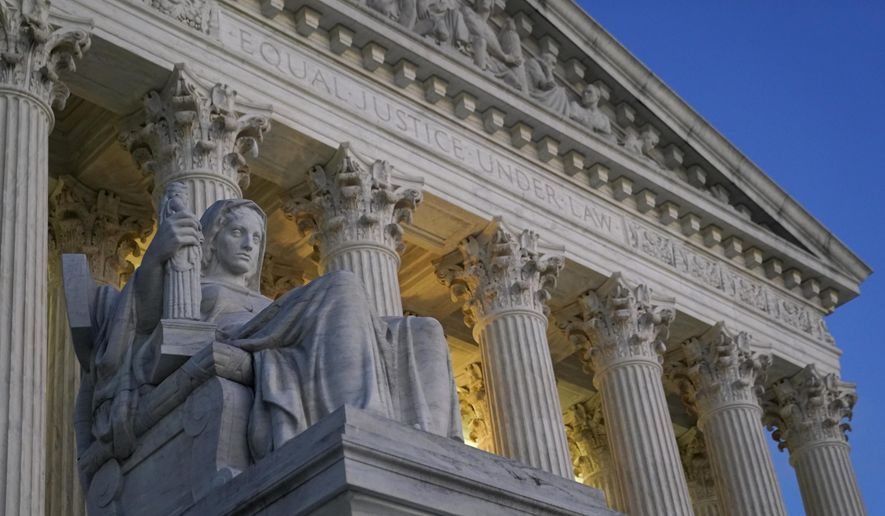The Supreme Court declined Monday to take up a case involving a group of atheists who sued a city police department that held a prayer vigil with the community after a shooting that injured several children.
But Justices Neil M. Gorsuch and Clarence Thomas hinted they were skeptical about whether the atheists really suffered a legal injury, suggesting the high court may get involved at some point to clarify that individuals can’t sue for “hurt feelings.” They argued that the atheists attended the prayer vigil willingly, knowing they could be offended.
“Federal courts are authorized ’to adjudge the legal rights of litigants in actual controversies,’ not hurt feelings,” wrote Justice Thomas.
He wanted to intervene in the case at this point, but the majority of the court declined to do so.
Justice Gorsuch, meanwhile, suggested that he agreed with Justice Thomas, saying the courts should be skeptical of a reasonable observer standard. But he added that the high court should wait to give the lower courts a chance to correct the issue.
“It should be clear that, ’[i]n a large and diverse country, offense can be easily found. Really, most every governmental action probably offends somebody. No doubt, too, that offense can be sincere, sometimes well taken, even wise. But recourse for disagreement and offense does not lie in federal litigation,” Justice Gorsuch wrote.
“Instead, in a society that holds among its most cherished ambitions mutual respect, tolerance, self-rule, and democratic responsibility, an ’offended viewer’ may ’avert his eyes’ or pursue a political solution,” he added.
The appeal was brought by the City of Ocala, Florida, which asked the court to reevaluate whether the atheists could sue for “psychic or emotional offense” — suggesting their injury wasn’t sufficient to meet the legal threshold of standing.
The city, located between Orlando and Gainesville, promoted a prayer vigil on the police department’s Facebook page after community leaders from the NAACP encouraged faith-based outreach with the police following a shooting that left several children injured.
A community activist and minister led the vigil, but the police chief encouraged attendance on the Ocala Police Department Facebook page.
Art Rojas and Lucinda Hale, two atheists, saw the post and attended the event. They later sued, arguing the prayer vigil violated the Establishment Clause, which establishes the freedom of religion.
“This case is not about protecting atheists from offense. It is about protecting prayer from government intrusion and the government from tyranny,” their lawyers wrote in court papers.
The district court had sided with the atheists but the U.S. Court of Appeals for the 11th Circuit had reversed, remanding the case back for further evaluation.
The appeals court pointed to the Supreme Court’s ruling last year in Kennedy v. Bremerton School District, in which the justices sided with a public high school football coach who would kneel and pray on the 50-yard line.
In that case, the high court that ruled the First Amendment protects an individual’s right to engage in religious expression.
But Ocala’s police department had wanted the high court to weigh in on standing to clarify that the atheists didn’t have grounds to sue while the appeals process played out.
It would have taken at least four justices to vote in favor of taking up the prayer vigil dispute.
Rachel Laser, president of Americans United for Separation of Church and State, said it was concerning that Justices Thomas and Gorsuch seemed open to blocking the litigation, finding the atheists wouldn’t have ground to sue.
“Justices Gorsuch and Thomas’ statements suggest a willingness to silence voices who speak out against these clear constitutional violations — violations that trample the religious freedom of us all. We must not be silenced. We need a national recommitment to the separation of church and state. Our democracy depends on it,” Ms. Laser said.
• Alex Swoyer can be reached at aswoyer@washingtontimes.com.




Please read our comment policy before commenting.